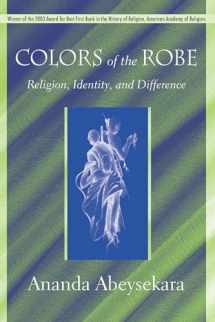
Colors of the Robe: Religion, Identity, and Difference (Studies in Comparative Religion)
Book details
Summary
Description
Colors of the Robe probes the Sri Lankan world of Buddhism and politics and suggests innovative directions for the global study of religion, culture, and violence. In a volume that surpasses other studies in locating Sri Lankan Buddhism in its sectarian, ethnic, cultural, social, and political constructions, Ananda Abeysekara illuminates the shifting configurations that animate the relations connected with postcolonial religious identity and culture. Drawing on extensive field research in Sri Lanka, Abeysekara illustrates how differing discourses about Buddhism come into central view and then fade. He develops the concept of "minute conjunctures of contingency" and places it in modest opposition to the Foucauldian (and postcolonial) conceptions of history and identity. Abeysekara suggests that the conjunctures of contingency help realize that Buddhism, identity, and difference do not remain simply available for disciplinary apprehension. This way of thinking about the unavailability of Buddhism, he contends, has profound political implications for how we might more generally think about and begin to disrupt entrenched presumptions of postcolonial cultural difference.


We would LOVE it if you could help us and other readers by reviewing the book
Book review



